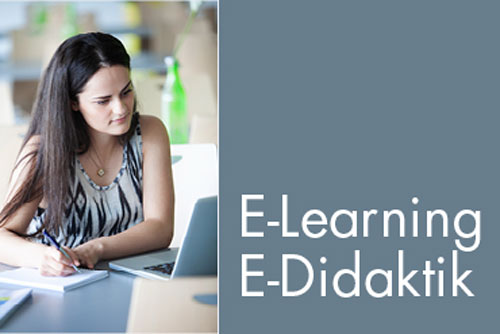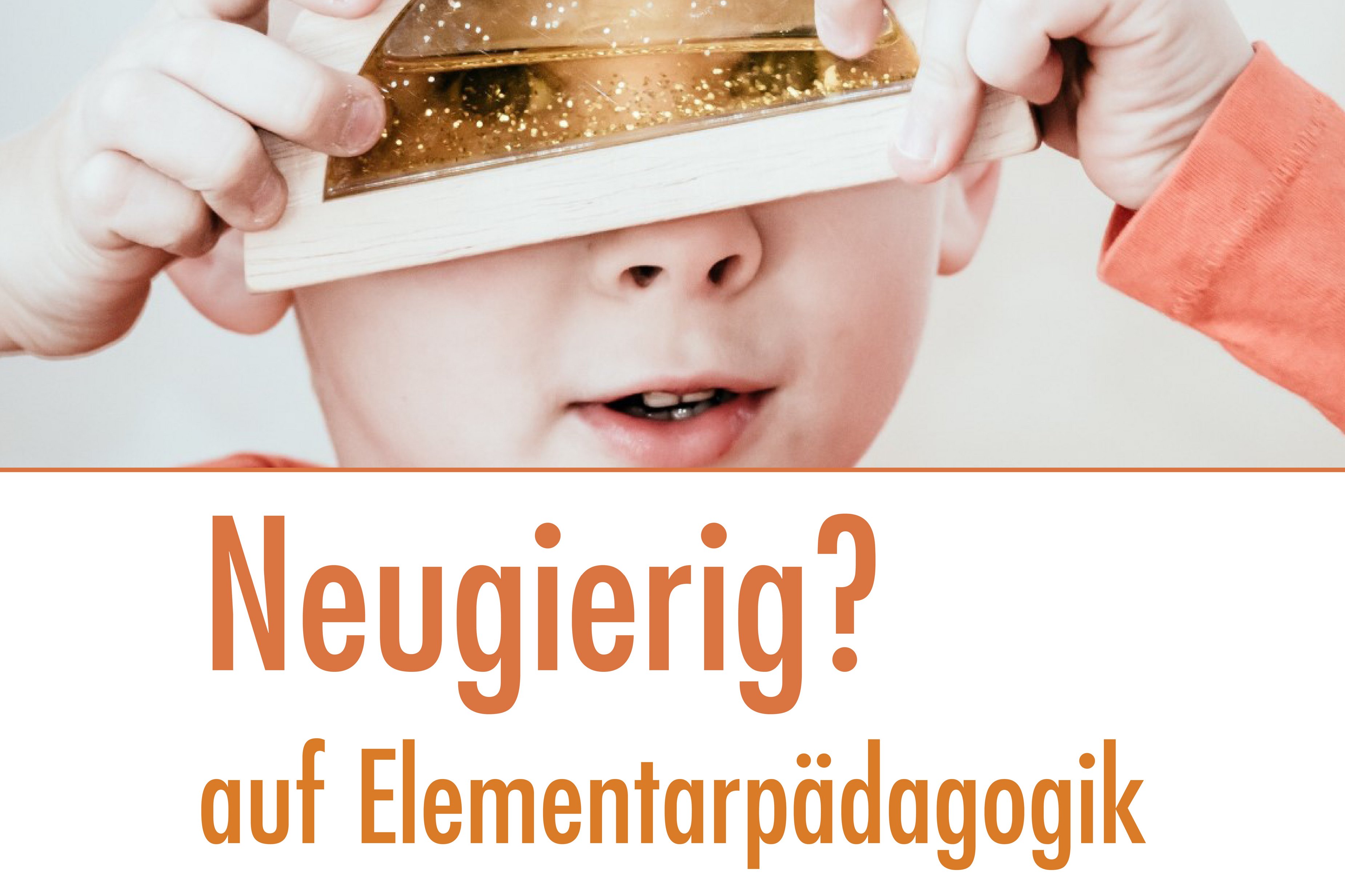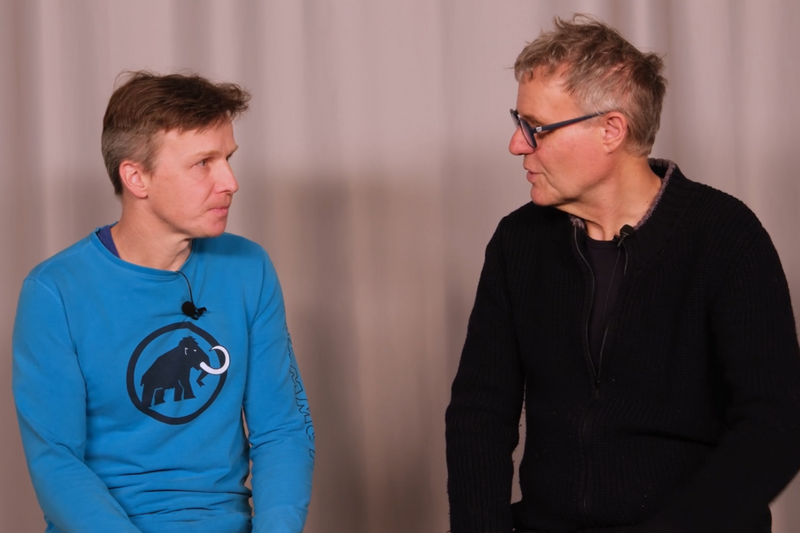Dr. habil. Elizabeth J. Erling
PH1 Professorin, Englisch Fachdidaktik

Kontakt
I am Professor of ELT Research & Methodology at the University of Education Upper Austria (PH Oberösterreich) and Elise-Richter Senior Postdoctoral Fellow at the University of Vienna. I am directing the project "Understanding disparities in English language education" (Udele). This research investigates the role of multilingualism as a resource for English learning and the potential contribution of language education to social justice. It also seeks solutions that improve students' experience of learning English in linguistically diverse schools.
Education
Habilitation, Applied Linguistics and English Language Education, University of Vienna, Austria – 2025
Habilitationsschrift: New Possibilities in English Language Education: Intersections of Multilingualism and Social Justice
Doctor of Philosophy, Theoretical and Applied Linguistics, University of Edinburgh, UK -- 2004
Thesis: Globalization, English and the German University Classroom: A Sociolinguistic Profile of Students of English
Masters of Science, Applied Linguistics, University of Edinburgh, UK -- 1999
Bachelor of Arts, Magna cum laude, Georgia State University, USA -- 1995
Major: English; Minor: German
Experience
Interim Professor of English Linguistics and Language Teaching -- April 2021-March 2022
Karlsruhe University of Education, Germany
Professor of English Language Teaching Research and Methodology -- Oct. 2017- Sept. 2020
University of Graz, Austria
Adjunct Lecturer, Institut für England- & Amerikastudien -- April 2022-Sept. 2022
Goethe Universität Frankfurt am Main
Adjunct Lecturer, Department of English and American Studies -- Oct. 2016-Sept. 2017 & Oct. 2020-March 2023
University of Vienna, Austria
Associate Professor in English Language Teaching and International Development and Teacher Education -- Sept. 2012-July 2016
Faculty of Wellbeing, Education and Language Studies, Open University UK
Assistant Professor in English Language Teaching -- Sept. 2007- Aug. 2012
Department of Languages, Faculty of Education and Language Studies, Open University, UK
Lecturer of English / Wissenschaftliche Mitarbeiter -- Oct. 1998-Sept. 2007
Sprachenzentrum, Freie Universität Berlin, Germany
Books
- Reilly, C., Erling, E.J., Chimbutane, F., Clegg, J. and Rubagumya, C. (Eds) (2024) Multilingual Learning Assessment, Ideologies and Policies in Sub-Saharan Africa (Vol. 2). Series in Language and Content Integrated Teaching & Plurilingual Education (Series Editors Christiane Dalton-Puffer and Angel Lin). Routledge.
- Gspandl, J., Korb, C., Heiling, A. and Erling, E.J. (Eds) (2023) Reclaiming Voice: Transforming Power Relations between Languages. Multilingual Matters.
- Erling, E.J., Clegg, J. Rubagumya, C. and Reilly, C. (Eds) (2021) Multilingual Learning and Language Supportive Pedagogies in Sub-Saharan Africa (Vol. 1). Series in Language and Content Integrated Teaching & Plurilingual Education (Series Editors Christiane Dalton-Puffer and Angel Lin). Routledge.
- Erling, E.J. (Ed) (2017) English across the Fracture Lines: the Contribution and Relevance of English to Security, Safety and Stability in the World. British Council.
- Erling, E.J. and P. Seargeant (Eds) (2013) English and Development: Policy, Pedagogy and Globalization. Multilingual Matters.
Peer-reviewed journal articles
- Erling, E.J. and Weidl, M. (2026) English language learning in linguistically diverse, urban schools in Austria: Seeking possibility amongst constraints. Second Language Teacher Education.
- Weidl, M. and Erling, E.J. (2025) Exploring multilingualism to inform linguistically and culturally responsive English language education. Education Sciences, 15(6): 763. https://www.mdpi.com/2227-7102/15/6/763
- Erling, E.J. and Weidl, M. (2025) Enhancing the research-praxis nexus: Critical moments from a linguistically diverse English language teacher education project in an Austrian Middle School. System, 103. https://doi.org/10.1016/j.system.2025.103762
- Erling, E. J. (2024). Researching English as a Language for International Development (ELFID) in Bangladesh and Beyond. TESOL Bangladesh Journal, 1(1), 53–76. https://doi.org/10.69907/tbj.v1i1.71
- Gitschthaler, M., Erling, E.J. and Schwab, S. (2024) ‘Segregation or Integration? German language support teachers’ beliefs about ‘ideal’ language support models in Austria.’ Journal of Multilingual and Multicultural Development. https://doi.org/10.1080/01434632.2024.2301990
- Weidl, M. and Erling, E.J. (2023) Kultursensible Bildung, Mehrsprachigkeit und Englischlernen: Einblicke in einen Udele-Workshop an der Universität Wien. Schulheft 3: Sprach-ver-handeln, 191.
- Erling, E.J., Brummer, M. and Foltz, A. (2022) ‘Pockets of possibility: Students of English in diverse, multilingual secondary schools in Austria.’ Applied Linguistics. doi.org/10.1093/applin/amac037
- Erling, E.J., Foltz, A., Siwik, F. and Brummer, M. (2022) ‘Teaching English to highly diverse, multilingual students from migration backgrounds: From deficit discourses to pockets of possibility.’ Languages. 7(3):186. doi.org/10.3390/languages7030186
- Gitschthaler, M., Erling, E.J., Stefan, K. and Schwab, S. (2022) ‘Teaching multilingual students during the COVID-19 pandemic in Austria: Teachers’ perceptions of barriers to distance learning.’ Frontiers in Psychology. doi.org/10.3389/fpsyg.2022.805530
- Erling, E.J., Gitschthaler, M. and Schwab, S. (2022) ‘Is segregated language support fit for purpose? Insights from German language support classes in Austria.’ European Journal of Educational Research. doi.org/10.12973/eu-jer.11.1.573
- Erling, E.J. and Moore, E. (2021) ‘Socially just plurilingual education in Europe: Shifting subjectivities and practices through research and action.’ Introduction to Special Issue. International Journal of Multilingualism. www.tandfonline.com/doi/full/10.1080/14790718.2021.1913171
- Erling, E.J., Foltz, A. and Wiener, M. (2021) ‘Differences in English teachers’ beliefs and practices and inequity in Austrian English language education: Could plurilingual pedagogies help close the gap?’ International Journal of Multilingualism. dx.doi.org/10.1080/14790718.2021.1913171
- Erling, E.J., Radinger, S. and Foltz, A. (2020) ‘Understanding low outcomes in English language education in Austria middle schools: The role of teachers’ beliefs and practices’. Journal of Multilingual and Multicultural Development. doi.org/10.1080/01434632.2020.1829630
- Erling, E.J., Chowdhury, Q.H., Solly, M. and Seargeant, P. (2019) ‘“Successful” migration, (English) language skills and global inequality: The case of Bangladeshi migrants to the Middle East.’ Multilingua. 38:3, 253–281. doi.org/10.1515/multi-2018-0021
- Erling, E.J. (2017) ‘Development aid, language planning and English education in Bangladesh’. Current Issues in Language Planning. Special issue on ‘Language planning and development aid.’ 11, 4: 388-406. doi.org/10.1080/14664208.2017.1331496
- Seargeant, P., Erling, E.J. and Solly, M., Chowdhury, Q. (2017) ‘The communicative needs of Bangladeshi economic migrants: The functional values of host country languages versus English as a lingua franca.’ Journal of English as a Lingua Franca. 6:1, 141-166. doi.org/10.1515/jelf-2017-0008
- Erling, E.J., Adinolfi, L., Hultgren, A.K., Buckler, A. and Mukorera, M. (2016). ‘Medium of Instruction (MOI) policies in Ghanaian and Indian primary schools: An overview of key issues and recommendations’. Comparative Education. Special Issue on 'English as a Medium of Instruction in Low and Middle Income Countries: Issues of Quality, Equity and Social Justice'. 53:3, 294-310. doi.org/10.1080/03050068.2016.1185254
- Seargeant, P., Erling, E.J. and Solly, M., Chowdhury, Q. and Rahman, S. (2016) ‘Analysing perceptions of English in rural Bangladesh: insights from postcolonialism and World Englishes’. World Englishes. 36: 4, 631-644. doi.org/10.1111/weng.12215
- Erling, E.J., Schekulin, C., Thir, V., Seidlhofer, B. and Widdowson, H. (2016) ‘English language: English as a Lingua Franca’. Year's Work in English Studies, 130-169.
- Erling, E. J., Seargeant, P. and M. Solly (2014) ‘English in rural Bangladesh: How is language education perceived as a resource for development in rural communities?’ English Today. 30:4, 16-22.
- Donohue, J. and Erling, E.J. (2012) ‘Investigating the relationship between the use of English for academic purposes and academic attainment.’ English for Academic Purposes 11:3, 210-19.
- Erling, E.J. and J.T.E. Richardson (2010) ‘Measuring the Academic Skills of University Students: Evaluation of a diagnostic procedure.’ Assessing Writing. 15:3, 177-193.
- Erling, E.J. and T. Bartlett (2008) ‘Making space for us: German graduate student voices in English.’ Innovation in Language Learning and Teaching. 2: 2, 174-188.
- Erling, E.J. (2007) ‘Local identities and global connections: Affinities with English among student specialists at the Free University of Berlin.’ World Englishes 26:2, 111-130.
- Erling, E.J. and T. Bartlett (2007) ‘Making English their own: The use of ELF among students of English at the Free University of Berlin.’ Nordic Journal of English Studies. 5:2, 9-40.
- Erling, E.J. and A. Walton (2007) ‘English at work in Berlin: A report on a survey of seven multinational companies in Germany.’ English Today. 23:1, 32-40.
- Erling, E.J. and S. K. Hilgendorf (2006) ‘Language policies in the context of German higher education.’ Language Policy. 5:3, 267-293.
- Erling, E.J. (2005) ‘The many names of English.’ English Today. 21:1, 40-44.
- Erling, E.J. (2002) ‘“I speak English since 10 years”: Global English and the German university classroom.’ English Today. 18:2, 8-13.
Book chapters
- Weidl, M. and Erling, E.J. (forthcoming) Investigating Multilingualism(s) in Education: Corresponding Experiences from Contrasted Settings. International Perspectives on Multilingualism: Research Methods, Policy, and Practices in Multilingual Classrooms. Multilingual Matters.
- Erling, E.J. and Foltz, A. (2025) Opportunity Gaps in English Language Learning in Austria: The Role of Teachers' Beliefs about their Students' Backgrounds. In Schurz, A., Keplinger, G. and Kreutner, E. (eds) New Pathways in Teaching English: Exploring Challenges and Innovations from Elementary to Tertiary Education. Trauner. https://kidoks.bsz-bw.de/frontdoor/deliver/index/docId/5206/file/Pathways_phschr-04.pdf
- Erling, E.J., Siwik, F., Haslacher, K. and Foltz, A. (2025) Have Preservice English Teachers Embraced Translanguaging? Insights from Austria and Germany. In Krompak, E. (Ed) Advocacy in Translanguaging Education. Multilingual Matters. 125-153 https://doi.org/10.2307/jj.29308407.9
- Erling, E.J. and Foltz, A. (2025) ‘Towards social justice in English language education: Promoting multilingual possibility in the classroom.’ In Biel, A. and Esleben, F. (eds) Taking Action in Language Education: Bringing Social Justice into the Classroom. Multilingual Matters. 128-154.
- Erling, E.J. (2024) ‘Offering possibilities for reflection to support multilingual language learners.’ In Andrews, O. W. and Tomlin, A.D. (eds). When We Hear Them: Attuning Teachers to Language Diverse Students. Information Age Publishing. 227-241.
- Erling, E.J., Yildiz, G. and Weidl, M. (2024) ‘Teaching the time using translanguaging pedagogies in Austrian ELT: A transformational action research collaboration.’ In Güngör, M.N. (ed.) Action Research in English Language Teaching: Voices from Diverse Contexts. Blackswan. 67-96.
- Erling, E.J., Mukherjee, S.J., Safford, K. and Tugli, F.M. (2023) ‘Ideologies of English and economic development: The influence on medium of instruction polices in Ghana.’ In Reilly, C., Erling, E.J., Chimbutane, F., Clegg, J. and Rubagumya, C. (Eds) Multilingual Learning Assessment, Ideologies and Policies in Sub-Saharan Africa. Routledge.
- Erling, E.J. (2023) ‘De-localising and re-localising teaching education: From India to Austria.’ In Coelsch-Foisner, S. und Herzog, C. (Eds.). De- / Re-Lokalisierung und Hybridisierung. Wissenschaft und Kunst: Kulturelle Dynamiken/Cultural Dynamics. Winter.
- Cataldo-Schwarzl, L. and Erling, E.J. (2023) ‘Supporting a shift in stance about translanguaging pedagogies: Insights from a teacher-researcher collaboration in Vienna.’ In Tian, Z. & Shepard-Carey, L. (Eds) (Re)imagining the Future of Translanguaging Pedagogies in Classrooms through Researcher-Practitioner Collaboration. Multilingual Matters.
- Resch, K. and Erling, E.J. (2022) ‘Die spezifischen Vulnerabilitäten von Schüler*innen in Deutschförderklassen während der COVID-19 Pandemie.’ In Dimmel, N. & Schweiger, G. (Eds.). Kinder und Jugendliche in pandemischer Gesellschaft. Wiesbaden: Springer Verlag VS. DOI: 10.1007/978-3-658-39304-5
- Erling, E.J. and Paar, S. (2022) ‘Opening up IRF to enable ECT (Effective Classroom Talk).’ In Fürstenberg, U. and Schumm-Fauster, J. (Eds) English Language Teaching in Austria: From theory to the classroom and beyond. Universitätsverlag Graz. doi.org/10.25364/978-3-903374-05-8
- Erling, E.J., Clegg, J., Rubagumya, C. and Reilly, C. (2021) Introduction. In Erling, E.J., Clegg, J. Rubagumya, C. and Reilly, C. (Eds) Multilingual Learning and Language Supportive Pedagogies in Sub-Saharan Africa. Routledge, 1-30.
- Erling, E.J., Safford, Kimberly and Tugli, F.M. (2021) ‘Classroom talk in Ghanaian upper primary schools: Understanding the reasons for English-only, teacher-dominant practices.’ In Erling, E.J., Clegg, J. Rubagumya, C. and Reilly, C. (Eds) Multilingual Learning and Language Supportive Pedagogies in Sub-Saharan Africa. Routledge, 79-98.
- Chowdhury, Q.H. and Erling, E.J. (2021) ‘Ideologies of English as a language of economic development in Bangladesh: Critical insights from two research projects in Bangladesh.’ In Sultana, S., Roshid, M., Haider, M.Z., Kabir, M.M.N. and Khan, M.H. (eds) The Routledge Handbook of English Language Education in Bangladesh. Routledge, 397-410.
- Chowdhury, Q.H., Erling, E.J. and Solly, M. (2020) ‘The value of grassroots English for Bangladeshi migrants to the Middle East.’ In Meierkord, C. and Schneider, E. (eds) World Englishes at the Grassroots. Edinburgh University Press.
- Erling, E.J. and Adinolfi, L. (2019) ‘Primary school medium of instruction policies in Ghana and India.’ In Safford, K. and Chamberlain, L. (eds) Learning and Teaching Around the World: Comparative and International Studies in Primary Education. Routledge, 55-61.
- Erling, E.J. and Khatoon, M. (2018) ‘The Status and Economic Significance of English in Bangladesh: Perceptions and Consequences’. In I. Eyres et al (Eds), Sustainable English Language Teacher Development at Scale: Lessons from Bangladesh. Bloomsbury, 23-44.
- Erling, E.J. (2017) ‘Introduction: English across the fracture lines: The role of English in stability, security and peace.’ In Erling, E.J. (Ed) (2017), 7-24.
- Solly, M., Chowdhury, Q.H., Erling, E.J., and Seargeant, P. (2017) ‘The role of English in the safety, stability, and resilience of economic migrants from Bangladesh to the Middle East.’ In Erling, E.J. (Ed) (2017), 165-174.
- Erling, E.J. (2017) ‘Being “the villain”: Globalization and the “native-speaker” English language teacher’. In Borjian, M. (Ed.), Perspectives on Language and Globalization: An Autoethnographic Approach. Routledge, pp. 90-102.
- Erling, E.J., Adinolfi, L., Hultgren, A.K., Buckler, A. and Mukorera, M. (2017). ‘Medium of Instruction (MOI) policies in Ghanaian and Indian primary schools: An overview of key issues and recommendations’. In Milligan, L.O and Tikly, L. (eds) English as a Medium of Instruction in Postcolonial Contexts: Issues of Quality, Equity and Social Justice. Routledge, 294-310.
- Hultgren, A.C., Erling, E.J. and Chowdhury, Q.H. (2016) ‘Ethics in Language and Identity Research’. In Preece, S. (Ed.), Routledge Handbook of Language and Identity. Routledge, 257-271.
- Hamid, M.O. and E.J. Erling (2016) ‘English-in-education policy and planning in Bangladesh: A critical examination’. In R. Kirkpatrick (Ed.), English Education Policy in Asia and the Middle East. Springer, 25-48.
- Erling, E. J., M. O. Hamid and P. Seargeant (2013) ‘Grassroots attitudes to the positioning of English as a language for international development.’ In E.J. Erling and P. Seargeant (Eds), 88-110.
- Erling, E.J. and P. Seargeant (2013) ‘Introduction.’ In E.J. Erling and P. Seargeant (Eds), 1-20.
- Breckenridge, Y. and E.J. Erling (2011) ‘The native speaker English teacher and the politics of globalization in Japan.’ In P. Seargeant (Ed). English in Japan in the Era of Globalization. Palgrave, 80-100.
- Seargeant, P. and E.J. Erling (2011) ‘The discourse of “English as a language for international development.”’ In Coleman, H. (Ed.) Dreams and Realities: Developing Countries and the English Language. British Council, 248-267.
- Erling, E.J. (2008) ‘Local investigations of global English: Teaching English as a global language at the Freie Universität Berlin.’ In J. Hardman and S. Dogancay-Aktuna (Eds). Global English Language Teacher Education. TESOL, 147-165.
- Erling, E.J. and S. K. Hilgendorf (2006) ‘English at the German University: A means of disadvantage or empowerment?’ In A. Weideman and B. Smieja (Eds). Empowerment through Language and Education. Peter Lang, 113-128.
- Erling, E.J. (2005) ‘Who is the global English speaker? A profile of students of English at the Freie Universität Berlin.’ In C. Gnutzmann and F. Intemann (Eds). The Globalisation of English and the English Language Classroom. Gunter Narr, 215-230.
- Erling, E.J. (2004) ‘English as the language of the European academic community: Questions from the Freie Universität Berlin.’ In A. Duszak and U. Okulska (Eds). Speaking from the Margin: Global English from a European Perspective. Peter Lang, 77-90.
Gesamtübersicht
- Androsch Gertrude
- Beer Hannah
- Bernauer Egbert
- Böhm Jan
- Buchner Tobias
- Cechovsky Nora
- Csongrady Michael
- Deibl Ines
- Demmig Silvia
- Dreer Silvia
- Drenowatz Clemens
- Erling Elizabeth
- Fahrenwald Claudia
- Feichter Helene
- Felgenhauer Tilo
- Feyerer Ewald
- Feyerer Jakob
- Gahleitner Simone Lucia
- Gamsjäger Manuela
- Grinner Karin
- Haim Kurt
- Hametner Stephan
- Heinrichs Karin
- Hirschenhauser Katharina
- Holz Christoph
- Hyry-Beihammer Eeva Kaisa
- Kemethofer David
- Kennedy Melissa
- Krainz Ulrich
- Kurz Peter
- Leitner Martin
- Lindner Karin
- Mahringer Eva
- Michal Alexandra
- Mohrs Thomas
- Moser Claudia
- Mußmann Jörg
- Neuböck-Hubinger Brigitte
- Nowak Elisabeth
- Perna Verena
- Pfeiler Martina
- Pichler Johanna
- Plaimauer Christine
- Pögl Uwe
- Polizio Daniele
- Pokitsch Doris
- Resch Katharina
- Riepl Andreas
- Sandberger Ute
- Sengschmid Eva
- Schinko Michaela
- Schöfl Martin
- Spaller Christina
- Spann Harald
- Steiner Margit
- Steinmair Gabriele
- Stöger Karin
- Stumpner Stephan
- Uhl Ramona
- Vorauer Markus
- Wagner Thomas
- Weber Christoph
- Windischbauer Susanne
- Zauner Norbert
- Zmelik Katharina
- Zwicker Thomas






